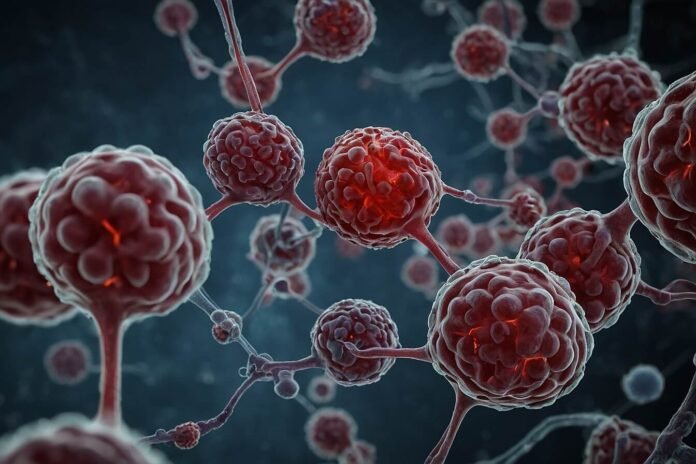Autoimmune Hemolytic Anemia: Understanding the Body’s Immune Response
Autoimmune hemolytic anemia (AIHA) is a condition where the body’s immune system mistakenly targets and destroys its own red blood cells. This can lead to various health complications due to the decreased oxygen-carrying capacity of the blood. Understanding AIHA, its causes, symptoms, and treatment options is crucial for effective management and improving the quality of life for those affected.
Understanding the Immune System and its Role
The immune system plays a vital role in protecting the body against harmful substances and infections. However, in autoimmune disorders like AIHA, the immune system becomes overactive and starts attacking healthy cells and tissues, in this case, red blood cells.
Types of Autoimmune Hemolytic Anemia
Warm Autoimmune Hemolytic Anemia (wAIHA)
In wAIHA, the immune system attacks red blood cells at body temperature, leading to their premature destruction. This type is more common and often occurs spontaneously or in association with other autoimmune diseases.
Cold Agglutinin Disease (CAD)
CAD occurs when the immune system targets red blood cells at lower temperatures, typically in response to cold exposure. Symptoms may worsen in colder climates or during winter months.
Drug-Induced Autoimmune Hemolytic Anemia
Certain medications can trigger an autoimmune response, leading to the destruction of red blood cells. Identifying and discontinuing the offending drug is crucial for managing this type of AIHA.
Causes and Risk Factors
The exact cause of AIHA is often unknown, but several factors may contribute to its development, including genetic predisposition, infections, certain medications, and underlying autoimmune conditions such as lupus or rheumatoid arthritis.
Symptoms and Signs of AIHA
Symptoms of AIHA can vary depending on the severity of the condition but may include fatigue, weakness, pale skin, shortness of breath, jaundice, and dark-colored urine. Prompt medical attention is essential for accurate diagnosis and management.
Diagnostic Process
Blood Tests
Blood tests, including a complete blood count (CBC) and a Coombs test, are commonly used to diagnose AIHA. A CBC can reveal low levels of red blood cells and hemoglobin, while a Coombs test detects antibodies attached to red blood cells.
Bone Marrow Biopsy
In some cases, a bone marrow biopsy may be performed to assess the production and maturation of blood cells and to rule out other potential causes of anemia.
Treatment Options
Corticosteroids
Corticosteroids, such as prednisone, are often prescribed to suppress the immune system’s activity and reduce the destruction of red blood cells. These medications can effectively control symptoms in many patients.
Immunosuppressive Drugs
In cases where corticosteroids alone are not sufficient, immunosuppressive drugs like azathioprine or rituximab may be recommended to further suppress the immune response.
Blood Transfusion
In severe cases of AIHA, blood transfusions may be necessary to replenish red blood cell levels and improve symptoms. However, transfusions are typically reserved for emergencies due to potential complications and the risk of antibody formation.
Lifestyle and Home Remedies
Maintaining a healthy lifestyle, including a balanced diet rich in iron and vitamins, staying hydrated, avoiding triggers such as extreme temperatures, and getting adequate rest, can help manage AIHA symptoms and improve overall well-being.
Coping and Support
Living with AIHA can be challenging, both physically and emotionally. Seeking support from healthcare professionals, joining support groups, and connecting with others facing similar challenges can provide valuable encouragement and coping strategies.
Complications and Outlook
Complications of AIHA may include an increased risk of infections, gallstones, and in severe cases, organ damage or failure. However, with proper treatment and management, many individuals with AIHA can lead fulfilling lives.
Prevention Strategies
While AIHA may not be entirely preventable, avoiding known triggers such as certain medications, infections, and extreme temperatures can help reduce the risk of flare-ups and complications.
FAQs
- Is AIHA a life-threatening condition?
While AIHA can be serious, especially if left untreated, many individuals respond well to treatment and can effectively manage their symptoms. - Can AIHA be cured?
In some cases, AIHA may go into remission with treatment, but it can also be a chronic condition requiring ongoing management. - Are there any dietary recommendations for individuals with AIHA?
Eating a well-balanced diet rich in iron and vitamins can help support overall health and manage symptoms of AIHA. - Can stress worsen symptoms of AIHA?
Stress can potentially exacerbate symptoms in some individuals, so stress management techniques may be beneficial. - Is AIHA more common in certain age groups?
While AIHA can occur at any age, it is more commonly diagnosed in adults, particularly those over the age of 60.

